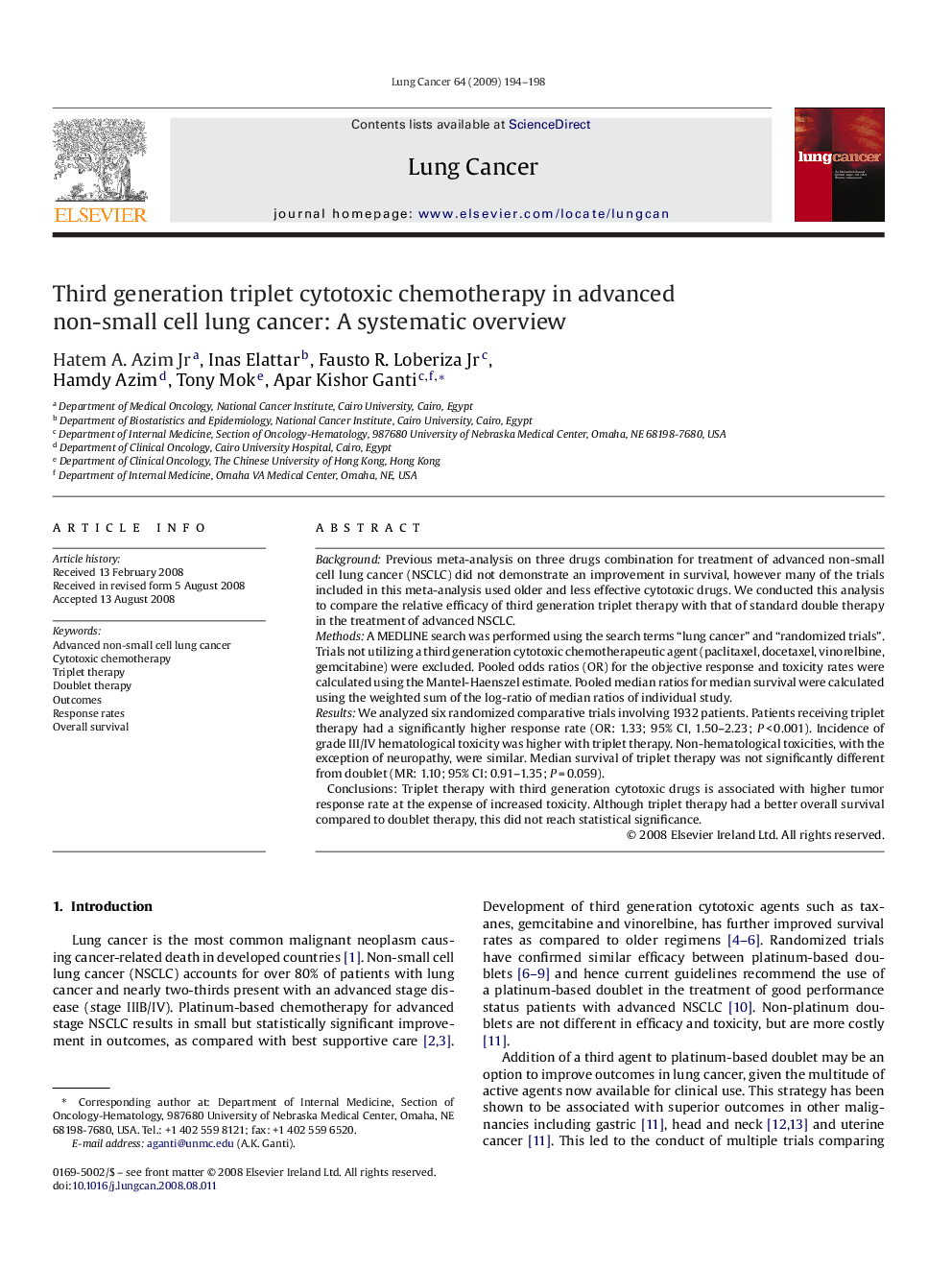| Article ID | Journal | Published Year | Pages | File Type |
|---|---|---|---|---|
| 2143139 | Lung Cancer | 2009 | 5 Pages |
BackgroundPrevious meta-analysis on three drugs combination for treatment of advanced non-small cell lung cancer (NSCLC) did not demonstrate an improvement in survival, however many of the trials included in this meta-analysis used older and less effective cytotoxic drugs. We conducted this analysis to compare the relative efficacy of third generation triplet therapy with that of standard double therapy in the treatment of advanced NSCLC.MethodsA MEDLINE search was performed using the search terms “lung cancer” and “randomized trials”. Trials not utilizing a third generation cytotoxic chemotherapeutic agent (paclitaxel, docetaxel, vinorelbine, gemcitabine) were excluded. Pooled odds ratios (OR) for the objective response and toxicity rates were calculated using the Mantel-Haenszel estimate. Pooled median ratios for median survival were calculated using the weighted sum of the log-ratio of median ratios of individual study.ResultsWe analyzed six randomized comparative trials involving 1932 patients. Patients receiving triplet therapy had a significantly higher response rate (OR: 1.33; 95% CI, 1.50–2.23; P < 0.001). Incidence of grade III/IV hematological toxicity was higher with triplet therapy. Non-hematological toxicities, with the exception of neuropathy, were similar. Median survival of triplet therapy was not significantly different from doublet (MR: 1.10; 95% CI: 0.91–1.35; P = 0.059).Conclusions: Triplet therapy with third generation cytotoxic drugs is associated with higher tumor response rate at the expense of increased toxicity. Although triplet therapy had a better overall survival compared to doublet therapy, this did not reach statistical significance.
